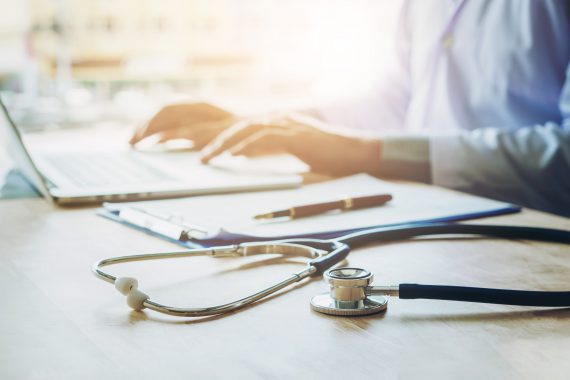GMC advises doctors to seek legal advice if reflections ordered by court

The GMC and leading medics have advised doctors to seek legal advice if their appraisal reflections are ordered by court, in new guidance published by the regulator.
The guidance aims to ‘reassure’ doctors about the role of reflections in light of the Bawa-Garba case, which caused increased tension between the regulator and the profession, with some GPs saying the GMC has taken a step in a ‘positive direction’.
However, other GP leaders have told Pulse they ‘don’t think [the guidance] is going to make much difference’ to the relationship between the regulator and doctors, as trust in the GMC continues to falter.
The guidance, which was published jointly by the GMC, the Academy of Royal Medical Colleges and the Conference Of Postgraduate Medical Deans today, reminds doctors that their appraisal reflections are not covered by legal privilege.
Doctors should therefore ‘focus on the learning rather than a full discussion of the case or situation’ in their reflections and should ‘seek advice’ from their legal advisor if their reflection documents are requested by a court.
The GMC alluded to the advice ahead of its release in its response to the Hamilton review of gross negligence manslaughter, saying that doctors would be advised not to include factual detail in their appraisal reflections.
The GMC had previously recommended to the Government’s ‘rapid review’ of gross negligence manslaughter charges in medicine that legal protection be granted to cover doctors’ reflections.
However, the recommendation ‘was not considered workable or appropriate’ by the Government.
The latest guidance therefore advises doctors not to record factual detail in their reflections and to seek legal advice if their reflection documents are court ordered.
The guidance says: ‘Where a disclosure request is received, the owner of the learning portfolio or other reflective note should seek advice from their employer, legal adviser, medical defence organisation or professional association.’
However, BMA sessional GP subcommittee lead Dr Zoe Norris, who is a GP appraiser, told Pulse that even with legal advice, the question still remains, ‘what should we and shouldn’t we be putting in our reflection’, adding it is unrealistic to ask doctors to exclude factal detail.
She said: ‘Trying not to [include factual information] is almost completely unlearning everything we’ve ever done and people will find that really hard.’
She added: ‘If they’re going to expect doctors to go through and make sure every single entry is completely anonymised so it couldn’t possibly be linked back, that’s just going to take twice as long as it does now.
‘It still goes against the grain of open and honest reflection. I think people are just going to find it too hard and will therefore withdraw from doing reflections in the same way.’
Speaking about the reflection guidance broadly, Dr Norris said: ‘I don’t think it’s going to make much difference. It comes back to trust and the profession doesn’t trust the GMC… and I don’t think putting out a document is going to rebuild that trust.’
Pulse had revealed that elements of Dr Hadiza Bawa-Garba’s e-portfolio were included in materials seen by expert witnesses ahead of her criminal case, with GPs calling into question whether doctors could ‘reflect openly and honestly’ in light of this.
The guidance offers ‘10 key points’ for doctors to consider while reflecting, including advocating for ‘group reflection’ and that notes ‘should be anonymised as far as possible’.
GMC director of education and standards Professor Colin Melville said: ‘Reflecting on experiences, both good and bad, is hugely important. The GMC doesn’t ask doctors for reflective notes to investigate concerns; in fact we have called for those notes to be given legal protection.’
AoMRC chair Professor Carrie MacEwen said the new guidance ‘should reassure all doctors that it is possible to record events in a way that optimises learning and promotes active change in practice based on this learning’.
RCGP chair Professor Helen Stokes-Lampard said: ‘Recent events have caused a lot of anxiety amongst all doctors, and particularly trainees, about how and when to reflect appropriately and effectively – and we hope this guidance goes someway to alleviate that.
She added: ‘We welcome the clarity this guidance brings, and its focus on learning and using this to identify opportunities to improve our own practice, and ultimately patient safety – as well as the flexible approach to reflection that is advocated.’
Pulse July survey
Take our July 2025 survey to potentially win £1.000 worth of tokens














